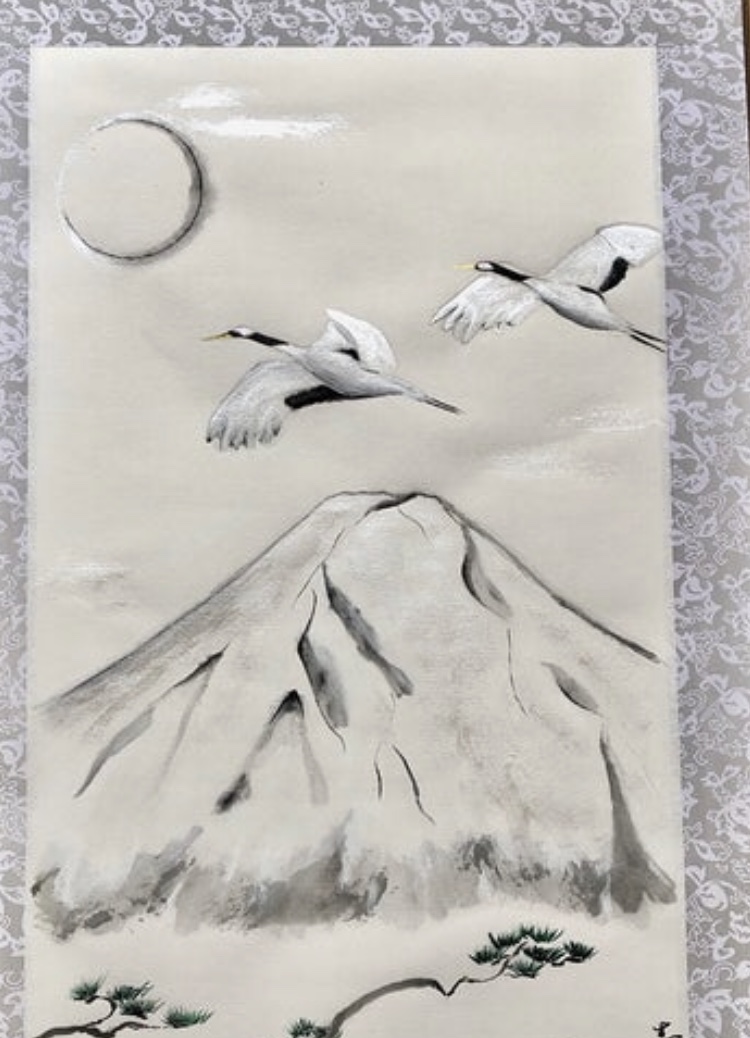Fuji shrine RYU Kakejiku dedication
I had a great opportunity to go to Fuji Hongu Sengen Shrine and dedicated my RYU dragon Kakejiku.
I had a great opportunity to go to Fuji Hongu Sengen Shrine and dedicated my RYU dragon Kakejiku.
I had a grateful opportunity to exhibit my artworks at National Art Center in January 2023. Thank you so much for all who supported and came to see my artworks. p
World heritage -Mt. Fuji Mt. Fuji is the highest mountain in Japan, the altitude of 3,776m. It is well known not just in Japan but in the world as the world heritage site. The reason Mt. Fuji was selected as …
I always love to express Japanese beauty and symbols in art, such as paintings and jewelry. Making Japanese scenery in 3D paintings in accessories is one of my favorite ways of expressing them. Using resin allows me to make 3D …
Japanese EMAKIMONO style hanging scroll First of all, what is EMAKIMONO?? Emakimono – “E” means “pictures”, “makimono” means “scroll” in Japanese. Emakimono is a Japanese traditional horizontal scroll which tells stories with pictures. From right side, we unroll the scroll …
Japanese traditional Emakimono 絵巻物 scrolls and landscape scenery scroll Read more »

Crane bird - Japanese healthy long life symbol Crane birds are beautiful big white birds with a little bit of black color on wings and necks. Even though we don’t get to see them often, crane birds are very familiar …
Crane bird – Japanese healthy long life good luck symbol Read more »